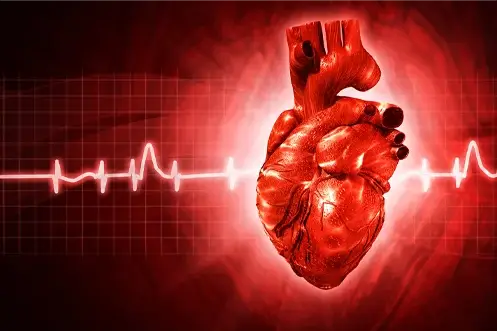Conditions
Heart Conditions We Treat You For
We Treat Heart Disease
Statistics indicate that heart disease is a leading cause of death in Australia. It is estimated that 1.2 million or 6% of adults 18 or over have had heart disease.
Heart disease can affect everyone; there are no restrictions. As soon as you suspect something could be awry, it’s critical to get a heart disease screening.

Heart Conditions We Treat
Aortic Valve Stenosis
An aortic valve stenosis happens when the heart’s aortic valve narrows causing the valve to not open all of the way. This in turn reduces or even blocks blood flow through the aorta to the rest of the body.
What Happens When You Get Aortic Valve Stenosis?
When aortic valve stenosis happens, you heart has to work hard to pump blood to the rest of your body.
What are the treatments?
The only effective treatment for symptomatic severe AS is valve replacement (surgical AVR [SAVR] or transcatheter aortic valve implantation [TAVI]). Choice of therapy in patients with symptomatic severe AS is discussed separately.
Atrial Fibrillation
Atrial fibrillation is one of the most common types of arrhythmias, an irregular heart rhythm. When atrial fibrillation happens, the heart beats faster than normal and the upper and lower chambers fail to work together like normal.
What are the treatmemts?
Atrial Fibrillation Treatments can include medicine to reduce heart rate and avoid strokes. Your doctor may also perform a cardioversion to restore heart rate to normal.
Broken Heart Syndrome
Broken heart syndrome also known as stress cardiomyopathy results from intense emotional or physical stress causes a severe heart muscle weakness.
What Are the Treatments?
Once it is confirmed that you actually have broken heart syndrome, the treatment is similar to a heart attack. Your doctor will prescribe some heart medicine, you will remain in the hospital until you’ve recovered. The average patient makes a full recovery within a month.
Coronary Artery Disease
Coronary heart disease is a type of heart disease that develops when the arteries of the heart fail to deliver enough oxygen-rich blood to the heart.
What Are the Treatments?
Besides prescribing medicines, you are also going to need to make lifestyle changes. These can include not smoking, eating more healthy, exercising regularly, losing weight, and reducing your stress. Your doctor may also need to perform an angioplasty and stent replacements. It may also be necessary to perform a coronary artery bypass surgery.
Heart Attack
Heart attacks happen when there isn’t a sufficient flow of oxygen-rich blood to a section of the heart causing the heart muscle to begin to die.
What is the Treatment?
It is VERY important that treatment occurs immediately when a heart attack happens. If you think you are having a heart attack, please get help right away.
Heart Failure
Heart failure happens when the heart can’t pump enough blood to meet the body’s needs. Heart failure does not mean that your heart has stopped working, but it does mean you need to seek medical attention.
What Treatments are Available?
Heart failure treatment will require a heart healthy lifestyle change, medicine and ongoing care. This also requires finding out the underlying cause such as heart disease, high blood pressure, or diabetes.
Heart Murmur
A heart murmurs make sounds during a heartbeat like a whooshing or swishing sound. Your doctor can normally hear these sounds with a stethoscope.
What Are the Treatments?
Most heart murmurs are harmless and there is very little treatment beyond monitoring. It is important to evaluate your heart murmur to ensure there are no underlying conditions.
High Blood Pressure
High blood pressure is a common problem. This happens when blood flows through your arteries at higher than normal pressure. There are two numbers measured in with blood pressure. These are your systolic pressure which is the pressure when the ventricle pumps blood out of your heart. There is also diastolic, which is the pressure between heartbeats, when the heart fills with blood.
What is the Treatment?
High blood pressure requires a change in your lifestyle, eating healthy, getting regular exercise, maintaining a healthy weight or losing weight if needed, and limit the amount of alcohol you may consume. In addition to changing your lifestyle, your doctor may prescribe medication to lower your blood pressure.
High Cholesterol
Cholesterol is important for your body to build healthy cells, but too much cholesterol can lead to heart disease. High cholesterol can cause fatty deposits to build up in your arteries and prevent the flow of blood to your heart.
What is the Treatment?
Your doctor will work with you to come up with a treatment solution. This often involves eating a healthy diet, being physically active, not smoking, and losing weight if needed. Sometimes your doctor may prescribe medication to assist with controlling your cholesterol.
Low Blood Pressure
As mentioned with high blood pressure, low blood pressure uses the same two numbers to measure blood pressure which are systolic and diastolic. Blood pressure is required to force blood being pushed against the walls of your arteries. Many won’t notice low blood pressure, but others may feel light-headed, dizzy or weak.
What are the Treatments?
Your doctor will identify what is causing the low blood pressure and help you with the cause. Sometimes, this could be an adjustment in your medication or prescribing medication.
Peripheral Arterial Disease
Peripheral arterial disease is attributed to plaque building up in the arteries. Plaque is made up of fat, cholesterol, calcium, fibrous tissue, and other substances in the blood. Given enough time, the plaque will harden and prevent oxygen-rich blood from getting to your organs and other parts of your body.
What are the Treatments?
Treatments include a healthy lifestyle change, medicines, and in some cases surgery.
